Do you know what is the difference between citizenship by investment program (CIP) and a fast-track citizenship solution? What do you think, are there any residency by investment programs without investments?
- What is citizenship by investment program?
- Fast-track Citizenship Solutions
- What is a not official citizenship by investment program?
- Residency by Investment Programs and Solutions
Offering immigration solutions for investors became a huge business worldwide. There are seven official citizenship by investment programs, three fast-track citizenship programs and more than 56 residency by investment programs/schemes and other solutions. Sometimes, it is not easy to decide which program offers the best benefits for you, and even experts of the immigration industry are confusing program categories. And don’t forget the critics! For them, all immigration programs are merely “passport schemes.”
Even Wikipedia can’t classify these programs; perhaps it was more comfortable for the editors to put everything under one roof: “Immigrant Investor Programs are programs designed to attract foreign capital and business people by providing the right of residence and citizenship in return. “ Of course, it’s wrong; anybody can invest in different citizenship programs if they have the necessary amount of money for investment.
I’ve just found a fascinating and attractive article about Slovakia, as a country with citizenship by investment program. Of course, they never had such official program. Perhaps, the situation is the same as in neighbouring Austria, where very wealthy applicants can obtain citizenship after investing large sums, but it is not official citizenship by investment program.
Moreover, there are transitions between immigration program layers, as the fast-track citizenship schemes.
Do you have questions about citizenship and residency programs? ASK HERE!
I am writing about these immigration solutions for eight years now, and I try to clarify and classify the knowledge base of the immigration industry’s products in this TLDR post. This article is very subjective and cannot be complete. You are welcome to add knowledge; I would gladly update it.
What is citizenship by investment program?
This one should be the easiest category. You invest, and in exchange for the money, you will receive citizenship. However, you can contribute as well (mainly less money), and you can also acquire your new passport, I mean citizenship. Of course, the contribution is not an investment, but these different options are in the citizenship through investment programs. There are countries, where the requisites are or can be “mixed investments.” Candidates have to invest, contribute, buy real estate and even pay fees. Investments for citizenship can be the purchase of real estate(s), purchasing governmental bonds and shares, make investments in new or already functioning companies, in hotel shares or in any other thing that the government of your new home wants to be financed. The elegant part is that “citizenship by investment” is the highest category, the most expensive one. That’s why all agents love to call the different programs as CIPs, the agency fees, and commissions are the highest at this level. But the reality is, that there are only 7 Official Citizenship by Investment Programs on the market (in January 2016).
Official Citizenship by Investment programs (CIPs)
In Europe:
In the Caribbean:
St Kitts (oldest)
St Lucia (newest)
Extras:
Vanuatu
Bangladesh
(The links above take you to the sites’ of the official Citizenship by Investment Units of the jurisdictions)
Of course, there are other programs, which were canceled or changed and
others are on the way (Jamaica, Samoa, Barbados, Montenegro, etc.faster). There are programs, which could be citizenship by investment schemes, but it is just impossible to get official information about them. So, we can not classify these as official schemes, like the unknown official citizenship through investment program of Comoros. I wanted to obtain information about it, because of the affordable costs and interesting historical roots, but the service provider’s phone was always switched off, and he didn’t answer to my emails. Meanwhile, Grenada’s great scheme was canceled and relaunched after a little bit more than ten years.
Fast-track Citizenship Solutions
These are mainly residency by investment programs (see below), which have an option or solution to obtain not only the residence permit but also the passport and faster than the standard naturalisation process. Interestingly, these programs can be quicker and slightly cheaper than a citizenship by investment program. In this case, Bulgaria is the best example, where applicants invest for the residence permit and after the successful process of doubling the amount of investment they can acquire that EU passport one year later. This is the same time frame as obtaining an EU citizenship through the Maltese Individual Investor Program! On the other hand, in Belgium, the residents didn’t have to invest more, but the naturalisation process was fast enough (minimum three years compared with the average 5-10 years in the EU). However, this is not official citizenship by investment category, these schemes are merely residency by investment solutions, except the Bulgarian one, that is an official fast-track program.
Fast-track Citizenship Solutions
Austria
Bulgaria
What is a not official citizenship by investment program?
There are a lot of countries, where you can buy a passport or even the whole “citizenship kit” (passport, certificate of naturalisation, ID, driving license, etc. really ). These operations can be even real legal processes, but the investor careful because, without proper law and well-known practical guide, the product is sometimes not the one you wished for. I will never forget the gossip about the 35 years old German businessman, who legally invested in African citizenship and purchased a house for him and his family. Everything was nice until he received the call-up for the compulsory military service.
Banking passport and second identity

Panama passport
In the case of financial maneuvers, businessmen like to buy banking passports. That is a very useful document to open an almost or absolutely anonym bank account. Panama operates the most famous banking passport program. Banking passports are not the best option to travel with, but some “banking citizens” used those documents successfully at frontiers.
Sometimes you might consider creating a real second identity by purchasing the passport and change your name somewhere discreetly and obtain a new passport with the brand new identity. Without proper planning, this operation can be followed by far-reaching legal consequences.
Diplomatic passport
Experts love to deny the chance of obtaining a diplomatic status and passport through investment. However, I saw a short advertisement in a magazine, where a small Central-American country was looking for consuls. If the applicant is a very wealthy and respected man of honour, it’s possible to find a country, which can be represented in another country by him. To tell the truth, this is also the standard process. How can you find someone for the honorary consul’s post in an important city, if you can’t afford to pay salaries and rental cost of the consulate’s building? I met honorary consuls in all parts of the world, and they were all very helpful professionals. They were businessmen, retired high-level governmental officers or even doctors. And only a few of them was originally a citizen of the represented country. During their professional career, they managed to build good relations, and they earned the honour of serving as honorary consul. And these people are representatives of very significant countries. Little or not so developed countries must find international contacts. How could a nation of 40,000 citizens represent its interests internationally without embassies and consulates? Of course, they need applicants for these posts. In the case of diplomatic passports, it’s good to keep in mind, that most developed countries accept new consulates and consuls after strict due diligence and long admission process.
There are a lot of unofficial ways to obtain citizenship through “investment.” My advice is to strictly avoid these solutions. There are legal and affordable ways to achieve your goals, and for sure there is the right solution for you and your family! If you decide to buy a passport, don’t forget, that real documents can be obtained in embassies and the building of the Ministry of Immigration or Foreign Affairs, please take care.
Scroll down for the fundamental knowledge about the other attached products of the citizenship market as residency by investment programs, non-lucrative and retirement visas! I created this SlideShare about the minimum necessary amounts of investments in all official citizenship by investment programs:
Residency by Investment Programs and Solutions
Residency by Investment Programs are those immigration solutions, where permanent or temporary residency permits are granted for investors. Applicants earn the right of living and working in the target country through residence schemes. This category is very wide one, there are a lot of different types of investments, permits and programs, I published knowledge of 56 different schemes and solutions until now (UPDATE 2018: 71 residency by investment solutions). What is the difference between a residency by investment program and a solution? It’s the name and the formal way of investment and process. Some governments love to give pretty titles for the programs, while others not. Process of the official programs is almost always easier then guiding a client through a solution without transparent legal frames . “Golden Visa”, “Residency Bonds Program”, 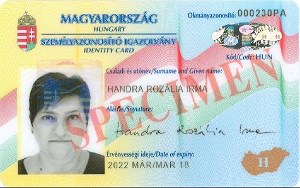 “Residence Rules 2014”, these are all residency by investment programs’ names. As there are so many solutions on the market, I collected all schemes under the name residency by investment, where the applicant must pay or invest for the temporary or permanent residence permit. The process is generally easy: the applicant buys (in some counties qualified and most of the time overpriced) real estate and acquires the residence permit after the due diligence process. These programs can be very fast, in Hungary only 8 working days are enough to obtain the visa after the act of investment and the submission of the documents. And only more 6 months must pass until the investor becomes a permanent resident of an EU member state with Schengen visa. Another fast solution is the UK Tier 1 Investor visa, where 2 weeks is enough for the process.
“Residence Rules 2014”, these are all residency by investment programs’ names. As there are so many solutions on the market, I collected all schemes under the name residency by investment, where the applicant must pay or invest for the temporary or permanent residence permit. The process is generally easy: the applicant buys (in some counties qualified and most of the time overpriced) real estate and acquires the residence permit after the due diligence process. These programs can be very fast, in Hungary only 8 working days are enough to obtain the visa after the act of investment and the submission of the documents. And only more 6 months must pass until the investor becomes a permanent resident of an EU member state with Schengen visa. Another fast solution is the UK Tier 1 Investor visa, where 2 weeks is enough for the process.
The amount and type of investment depends always on the program, and the possibilities are almost the same as we saw it at the CIPs.
Residency by investment programs or residence permit solutions
Malta introduced a citizenship and several residency by investment programmes and one of these very popular schemes is the Malta Global Residence Programme. There is a yearly flat tax of EUR 15,000 and the resident must rent a qualified real estate for roughly 830 euros/month. That’s all, but where is the investment? Switzerland has the most traditional “Lump-sum” residency program. These residents must pay enormous amounts of annual flat taxes ( can be 7x times their monthly renting costs), but they don’t invest at all. Interestingly, the main advantage of both programs are the law taxes combined with the right to live in a safe, rich and beautiful country as Malta or Switzerland. These programs are always classified as Residency by Investment Programs, without investment.
Residence permit solutions for professionals
The easiest and most cost affordable product on the residency market is the Paraguay Permanent 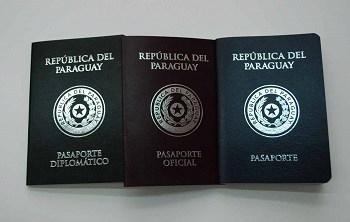 Residence Permit (Please let me know, if you know a cheaper low-tax solution). Absolutely no investment needed and the applicants are merely businessmen or professionals, who are looking for a secure law-tax jurisdiction. Of course, investors use this solution as well to make their South-American operations easier and to start new projects from the very friendly Paraguay. Panama’s Friendly Nations Visa is the other affordable immigration solution to a low-tax country with one of the most developed offshore financial center. Unfortunately, only citizens of 47 really friendly country can apply for this type or visa.
Residence Permit (Please let me know, if you know a cheaper low-tax solution). Absolutely no investment needed and the applicants are merely businessmen or professionals, who are looking for a secure law-tax jurisdiction. Of course, investors use this solution as well to make their South-American operations easier and to start new projects from the very friendly Paraguay. Panama’s Friendly Nations Visa is the other affordable immigration solution to a low-tax country with one of the most developed offshore financial center. Unfortunately, only citizens of 47 really friendly country can apply for this type or visa.
The most popular way to get this residence permit through the programme is to form a company. Hong Kong is the only one jurisdiction with a residence program, which announced that they prefer talents over capital inflow. I was very curious about the practical meaning of the expression and I realized soon, that talent in HK symbolizes almost the original meaning of the ancient word (according to Wikipedia):
“The talent of gold was known to Homer, who described how Achilles gave a half-talent of gold to Antilochus as a prize. It was approximately the mass of water required to fill an amphora.”
Malta has a very good solution for expat professionals from mainly the financial industry. Some professions can qualify for a very low, only 15% income tax (don’t forget residents of Malta don’t pay taxes on their foreign source income if it’s not remitted to Malta).
In the Netherlands, there is a fast-track residence solution for professionals arriving from third countries. Of course, the most popular immigration programs for skilled persons are managed by New-Zealand, Australia, and Canada. These countries are accepting tens of thousands of professionals every year and it looks like the system works very well. None of these programs are too expensive, but it is not so easy to qualify. The less difficult administrative solution is perhaps the Canadian Express Entry.
Another interesting residency solution was launched by the United Arab Emirates. If someone forms a company in one of those modern offshore zones, they can get work permits. So, UAE has several new agreements about avoiding double taxation. Through these government-backed agreements, citizens of some EU countries can work as residents without paying taxes and they only have to visit the UAE for a couple of days each year.
The modern e-immigration solution
The e-immigration program of Estonia is the next step of the modern immigration industry. It’s not a physical residence program, but the most useful in case of someone want to enjoy the EU’s mostly clear business rules/opportunities and transparent taxing system. People from anywhere can apply online for the e-residence card of Estonia. The card must be picked up personally somewhere at the closest Estonian diplomatic mission. With the card, the e-resident can open an European bank account 100% online and even can form a company, pay taxes, etc. The benefit is that e-residents can manage an European or global business from anywhere. The cost of the Estonian e-residence is only 50 euros. I don’t think this price would be expensive for a complete business identity in the EU.
Retirement programs
Belize, Costa Rica, Panama, Mexico, Nicaragua, and Malta have the most popular retirement programs. These schemes provide residence permit for retired (and sometimes for active) foreigners, who have proof of enough income and have a health insurance. This is a very profitable niche of the immigration industry. At least, those big players of this sector spend the most to marketing this schemes for sure. The good thing is that in some countries pensioners pay less for a lot of important services, like any kind of cultural costs, public transportation, and even flight tickets or restaurants! Retired applicants finance many beautiful real estate developments in various Mediterranean and tropical paradises and in this case, it’s also a residency by investment program.
Non-Lucrative or Self-Sufficient Visas
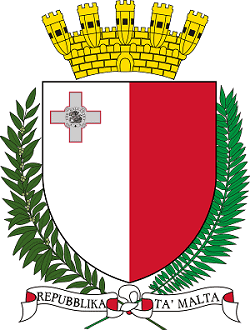 This is a very popular visa type for applicants who can live without working or for freelancers and artists. The proof of solvency is always a must. For example in Malta, an EU citizen must provide a bank account statement of more than 14,000 euros. However, a “TCN” (third country national) must have 50,000 euros in the bank. The owner of the visa can not work in Malta, but his/her foreign income won’t be taxed. The good thing is that the foreigner only loses the visa if spends more than 183 days in one different country. Spain and Italy has more or less similar visa solutions. (Do you know any good visa solutions for digital nomads? Please contact me)
This is a very popular visa type for applicants who can live without working or for freelancers and artists. The proof of solvency is always a must. For example in Malta, an EU citizen must provide a bank account statement of more than 14,000 euros. However, a “TCN” (third country national) must have 50,000 euros in the bank. The owner of the visa can not work in Malta, but his/her foreign income won’t be taxed. The good thing is that the foreigner only loses the visa if spends more than 183 days in one different country. Spain and Italy has more or less similar visa solutions. (Do you know any good visa solutions for digital nomads? Please contact me)
Student Visas
Obtaining a student visa should be the easiest process, but it is not. There are young and hard working students, who want to learn in another country. Sometimes, they need more complex visa options, because of their country of origin. In these cases, wealthier families use often residency programs to obtain the right to learn. In Asia, there are a lot of companies offering consultancy services for students and they are always looking for new or easier/cheaper solutions for the foreign universities.
I created a list of ALL Residency by Investment Programs, Schemes, and Solutions!
Please, comment if you have additional information or if you found any not clear knowledge!
***
Copyright by Bence Zákonyi
Follow me for citizenship and immigration information on Twitter, Facebook, Quora, Google+ and on Linkedin

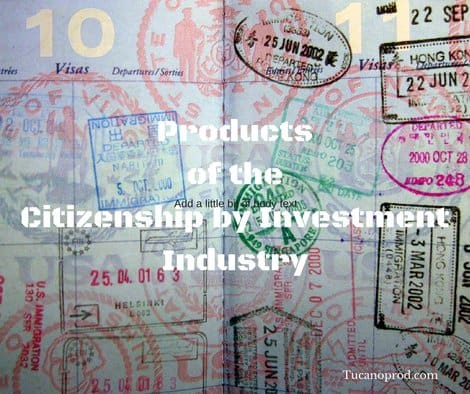

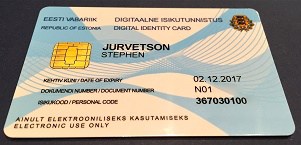
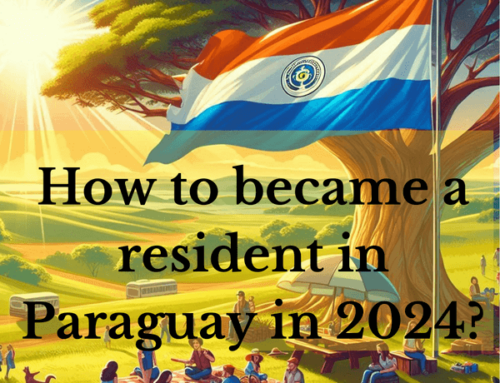



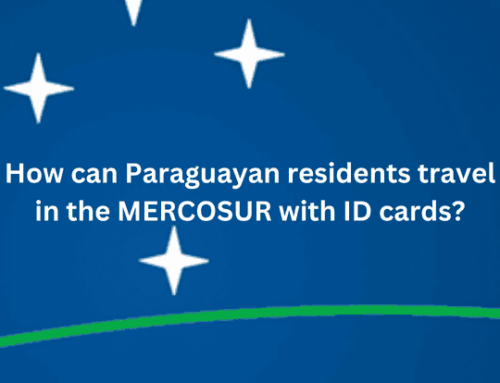
Hello, I enjoy reading all of your article post. I wanted
to write a little comment to support you.
Thank you very much! This is my personal blog, please visit and comment anytime!
I know this web site pdovides quality based articles and
other information, is there any other web site which offers these kinds of iformation in quality?
I am the content creator at walshww.com. You find there information on ALL programs. I mean detailed posts about the citizenship and residency solutions, more than 300 contents. You will find there, what you are looking for! (and then come back please)
Hi there, just wanted to tell you, I liked this
article. It was helpful. Keep onn posting!
Thank you for thhe auspicious writeup. It in truth was a enjoyment account it.
Look compplicated to far brought agreeable from you!
However, how can we keep up a correspondence?
Thank you very much Frederic! My mail is info@tucanoprod.com or +346371526 or santo.benedetto on Skype.
Dear sir I would like to enquire about visa through investment .I have a spouse and three children aged 25, 20 and 11. Can you tell me which countries would be good for my family and i to apply for visa through investments and how much money would I need to invest?
Dear Muhammad,
Please contact me at info@tucanoprod.com and I give you all the necessary information and help you to find the best solution.